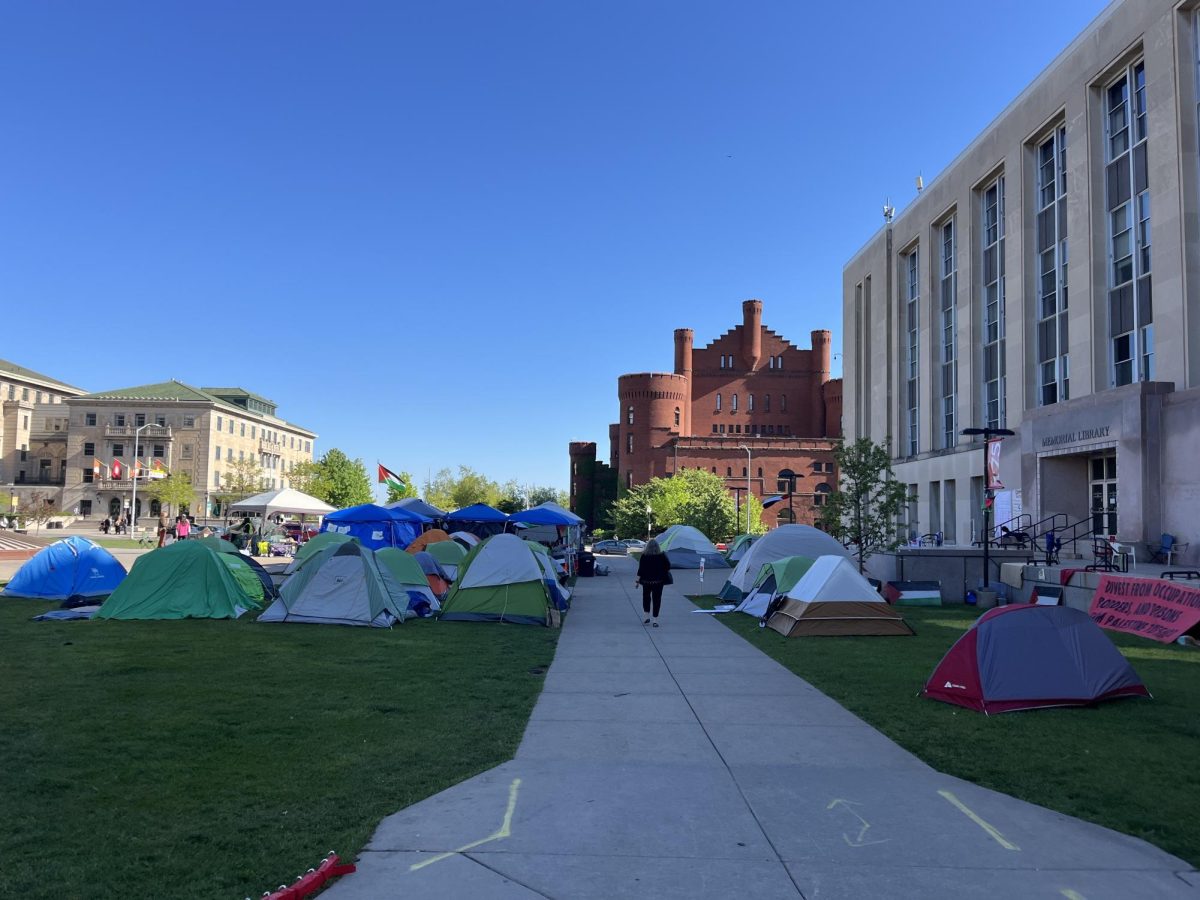[media-credit name=’MEGHAN CONLIN/Herald Photo’ align=’alignnone’ width=’648′] [/media-credit]University of Wisconsin Chancellor John Wiley announced a total of $100 million in donations Monday toward the construction of an on-campus biomedical research complex.
[/media-credit]University of Wisconsin Chancellor John Wiley announced a total of $100 million in donations Monday toward the construction of an on-campus biomedical research complex.
The proposed Wisconsin Institutes for Discovery will include two centers — one public, one private — and will engage in an array of medical research, including using human embryonic stem cells to help cure multiple types of diseases and advance regenerative medicine.
Funding for the project was aided considerably with Wiley's announcement Monday of the largest individual gift to UW in the school's history.
UW alumni John Morgridge, chair of the board of Cisco Systems, and his wife, Tashia, donated $50 million to the private Institute for Discovery, a contribution matched by the Wisconsin Alumni Research Foundation and the state.
"It's an institute that will foster all sorts of research," Wiley said. "It cuts across an array of disciplines … and will continue to break down the walls of science."
The privately funded institute will be named the "Morgridge Institute for Discovery," Wiley added, in honor of the alumni's gift.
Wiley said all research conducted in the Morgridge Institute will be funded privately, allowing the center to sidestep federal regulations limiting stem-cell research.
"[Stem-cell research is] one example that could not be done in the public side of the house," Wiley said.
The entire research complex, Wiley added, will be funded by a combination of private and public contributions.
The Wisconsin State Building Commission has already agreed to match the Morgridges' $50 million donation to help fund the construction of the research complex, Wiley said. However, final approval of the plan will have to wait until the commission's next meeting April 19.
The donations announced Monday are expected to fund the first phase of the project — construction of the Morgridge Institute, which is expected to begin on the 1300 block of University Avenue in mid-to late 2007, and to be completed in 2009.
Officials plan to have the research complex eventually occupy the entire 1200 and 1300 block area of University Avenue.
Though the institutes have not yet been built, WARF will begin to accept proposals starting Monday requesting seed grant funding for collaborative research to be conducted at the institutes.
Gov. Jim Doyle, who first proposed the Wisconsin Institutes for Discovery idea in November 2004, attended Monday's press conference and praised the efforts to raise private and public funds to support medical research.
"Fifty million here, 50 million there, all of a sudden you're talking about real money," Doyle said. "The bottom line is there is somebody not yet born decades from now who may suffer from juvenile diabetes but because of the work done here in Madison, there will be a cure."
Doyle added the research complex would add to a Wisconsin medical science industry that "already contributes $5 billion to the state economy and 20,000 jobs."
John Morgridge agreed with Doyle's assessment, saying investing in research was necessary to maintain the "excellence" of UW.
"The excellence of this university is not guaranteed," Morgridge said. "We'll only remain excellent if we continue to invest in education … to ensure our competitiveness in years to come."










